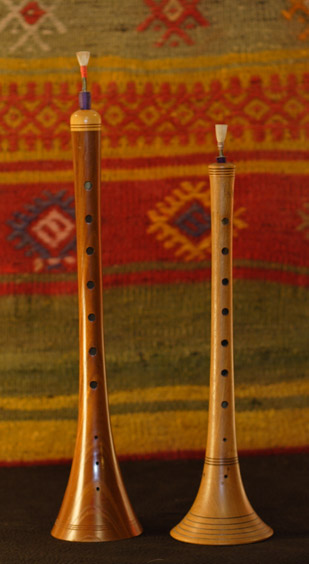The roots of traditional music in Turkey span across centuries to a time when the Seljuk Turks migrated to Anatolia and Persia in the 11th century and contains elements of both Turkic and pre-Turkic influences. Much of its modern popular music can trace its roots to the emergence in the early 1930s drive for Westernization.

Romani music is the music of the Romani people who have their origins in northern India but today live mostly in Europe.
Germany claims some of the most renowned composers, singers, producers and performers of the world. Germany is the largest music market in Europe, and third largest in the world.
Anatolian rock, or Turkish psychedelic rock, is a fusion of Turkish folk music and rock. It emerged during the mid-1960s, soon after rock groups became popular in Turkey. Most known members of this genre includes Turkish musicians such as Barış Manço, Cem Karaca, Erkin Koray, Selda Bağcan, Fikret Kızılok alongside bands such as Moğollar, Kurtalan Ekspres, 3 Hürel, and Altın Gün.

Italo disco is a music genre which originated in Italy in the late 1970s and was mainly produced in the 1980s. Italo disco evolved from the then-current underground dance, pop, and electronic music, both domestic and foreign and developed into a diverse genre. The genre employs electronic drums, drum machines, synthesizers, and occasionally vocoders. It is usually sung in English, and to a lesser extent in Italian and Spanish.

Arabesque are an all-girl trio formed at the height of the European disco era in 1977 in Frankfurt, West Germany. The group's changing lineup worked with the German composer Jean Frankfurter.
Chalga is a Bulgarian music genre. Chalga or pop-folk is essentially a folk-inspired dance music genre, with a blend of Bulgarian music and also primary influences from Greek, Turkish and Arabic.
Arabesque is a style of Turkish music popular in Turkey, the Balkans, the Caucasus, the Middle East, and Eastern Europe. The genre was particularly popular in Turkey from the 1960s through the 2000s. Its aesthetics have evolved over the decades and into the 2010s. It often includes the bağlama and Ottoman forms of Middle Eastern music. Arabesque music is mostly in a minor key, typically in varieties of the Phrygian mode; it heavily features themes that tend to focus on issues of longing, strife, and desire.

The various nations of the region include the Arabic-speaking countries of the Middle East, the Iranian traditions of Persia, the Jewish music of Israel and the diaspora, Armenian music. Azeri Music, the varied traditions of Cypriot music, the Turkish music of Turkey, traditional Assyrian music, Coptic ritual music in Egypt as well as other genres of Egyptian music in general. It is widely regarded that some Middle-Eastern musical styles have influenced Central Asia, as well as the Balkans and Spain.
Eurodisco is the variety of European forms of electronic dance music that evolved from disco in the middle 1970s, incorporating elements of pop and rock into a disco-like continuous dance atmosphere. Many Eurodisco compositions feature lyrics sung in English, although the singers often share a different mother tongue.

Turkish folk music is the traditional music of Turkish people living in Turkey influenced by the cultures of Anatolia and former territories in Europe and Asia. Its unique structure includes regional differences under one umbrella. It includes popular music from the Ottoman Empire era. After the foundation of the Turkish Republic in 1923, Turkish President Mustafa Kemal Atatürk ordered a wide-scale classification and archiving of samples of Turkish folk music from around the country, which, from 1924 to 1953 collected more than 10,000 folk songs. Traditional folk music was combined with Western harmony and musical notation to create a more modern style of popular Turkish music.

Orhan Gencebay is a Turkish musician, bağlama virtuoso, composer, singer, arranger, music producer, music director, and actor. Gencebay was born in the coastal town of Samsun on 4 August 1944. He is of Crimean Tatar descent. In 1998, he was named a State Artist of Turkey.
Arabesque is a form of artistic decoration consisting of plant tendrils, leaves and flowers, very common in Islamic art. It may also refer to:
Turks in Germany, also referred to as German Turks and Turkish Germans, are ethnic Turkish people living in Germany. These terms are also used to refer to German-born individuals who are of full or partial Turkish ancestry. The majority of Turks arrived or originate from Turkey, although some ethnic Turkish communities in Germany trace their ancestry to other parts of southeastern Europe or the Levant. At present, ethnic Turkish people form the largest ethnic minority in Germany. They also form the largest Turkish population in the Turkish diaspora.
Čalgija or Chalgiya is a Bulgarian music genre, which also is a subgenre of the old urban traditional folk music of Bulgaria.
A music genre is a conventional category that identifies some pieces of music as belonging to a shared tradition or set of conventions. Genre is to be distinguished from musical form and musical style, although in practice these terms are sometimes used interchangeably.
Islamic Force is an Oriental hip hop group, originally from Berlin, who ultimately began the Oriental hip-hop movement as a way of creating an identity for minorities in Germany. The group was founded in the late 1980s during a time of growth for hip-hop in Germany and was made up of members of different ethnicities, including lyric writer and rapper:

Arabesque: Geçmiş, Geçmemiş Hiç... is the fifth studio album of Cypriot-Turkish singer Işın Karaca released on April 22, 2010. It features arabesque music style. Album includes Kibariye's hit song "Kim Bilir". Selami Şahin becomes Karaca's vocal coach for this album to help her sing in arabesque style. All songs are arranged by Selim Çaldıran. Album is recorded acoustically as well as her last 3 albums. Hüsnü Şenlendirici featured in "Ben Sevdalı, Sen Belalı".







